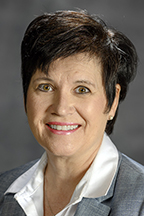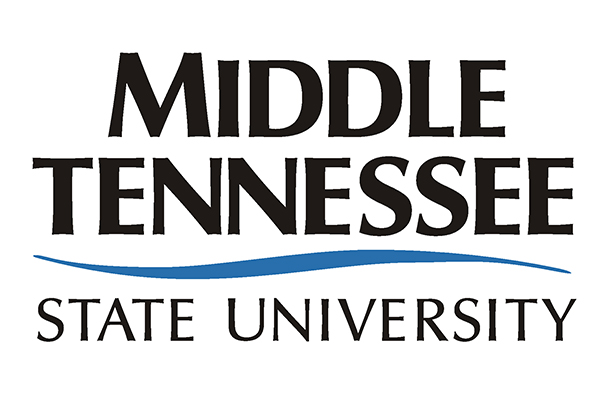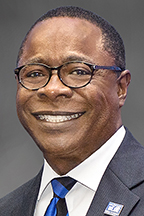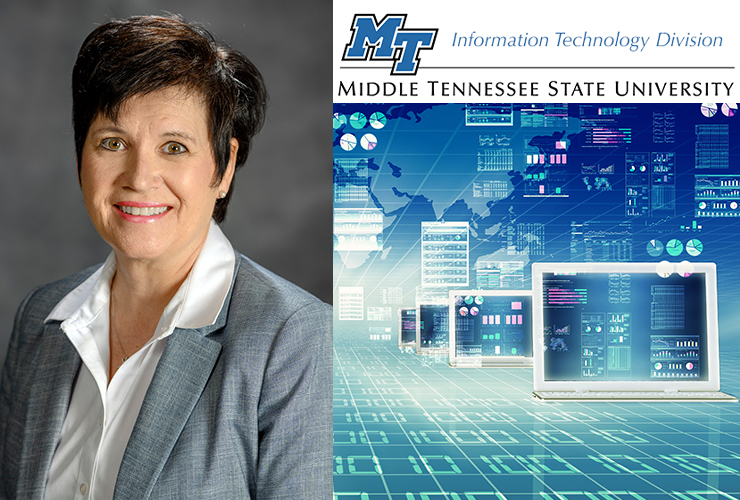Wrapping up her first semester as MTSU’s acting vice president for information technology and chief information officer, Yvette Clark looks forward to building upon the investments in recent years to keep the university on the cutting edge technologically.
“I think we always need to be looking at the newest technology that’s out there and helping our end users move forward with those decisions,” she said, “but also having a good idea of what that return on investment is and how long we need to stay in those solutions before we look at something else.”

Yvette Clark
MTSU President Sidney A. McPhee appointed Clark to the position following the retirement of Bruce Petryshak in January, and she now leads an Information Technology Division staff of roughly 90 IT professionals. Clark came to MTSU last August as associate vice president of enterprise application services before moving into her current role.
“It’s been a great move to MTSU,” the Colorado native said. “It’s such a friendly community here on campus. It’s very diverse and there are so many opportunities on the IT side of things.”
Clark holds a bachelor’s degree in chemical and petroleum refining from the Colorado School of Mines and a master’s in civil and environmental engineering from Tennessee Tech University in Cookeville, Tennessee, where she served as executive director of Information Technology Services for four years before coming to the Blue Raider campus.
“Information technology continues to play an increasingly critical role in higher education, made obvious these past few years as we’ve leveraged the tremendous technical resources now available to help us navigate the pandemic, but perhaps even more so as we move forward in the face of ever-emerging new technologies that could benefit our faculty, staff and students,” McPhee said. “I’m pleased that someone with Yvette’s background has taken on this important role within our university’s executive leadership.”
Clark’s professional background also includes specialization in water resource planning using Geographic Information Systems linked to water quality and quantity models, and she also served as an adjunct instructor for civil, environmental and chemical engineering for several years.
 At MTSU, Clark’s initial role in enterprise application services focused on the business side of the university as it relates to areas such as financial accounting and payroll. She notes that her new role as CIO requires her to also consider the needs of other administrative staff, but more importantly how students and faculty can achieve the highest quality classroom experience possible.
At MTSU, Clark’s initial role in enterprise application services focused on the business side of the university as it relates to areas such as financial accounting and payroll. She notes that her new role as CIO requires her to also consider the needs of other administrative staff, but more importantly how students and faculty can achieve the highest quality classroom experience possible.
“Higher education is an amazing IT consumer … but yet we still have to do everything as an industry does as far as security and everything else,” she said of ITD’s comprehensive role. “And we have such a diverse user group as far as the things that we do with technology … it’s a lot. It’s finding the balance of trying to do innovative things while still needing to run the business.”
Clark said she’s challenged herself and the ITD staff to become better communicators with the academic colleges and departments about their specific needs as well as what resources are available that could potentially improve their work environments.

Dr. Sidney A. McPhee
“It all boils down to communication,” she said, adding that she’s also challenged the university’s Microsoft representatives to look at how training opportunities are deployed for students, faculty and staff. “They’re helping us look at the office of the future.”
Another area of focus is student feedback and engagement. Clark would like to engage student organizations such as the Student Government Association and other student influencers as IT is considering incorporating new technology.
“How do we keep the pulse on what the students would really want and use during their time at MTSU?” she said. “So I think it means perhaps engaging the student body a bit differently to get their input about what they would really use, and not just in the class, but what would help them in their career here at MTSU.”
Clark said the university’s quick and highly successful pivot to work-at-home and remote teaching solutions during the outset of the pandemic should be revisited to make sure those resources are either being maximized or being reevaluated to assess usefulness.
“I think now more than ever, we’re all recognizing the fact that we need to be lifelong learners,” she said. “I do think we have to be willing to accept more change and being adaptable when it comes to technology.”
An avid reader, Clark said she also occasionally takes executive leadership courses to keep expanding her knowledge base.
— Jimmy Hart (Jimmy.Hart@mtsu.edu)


COMMENTS ARE OFF THIS POST